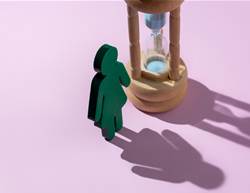Spending too much time in the sun post-menopause may increase your risk of developing major health issues such as osteoporosis, cardiac diseases and Alzheimer's according to new research.
"When a woman reaches menopause, we see the levels of oestrogens decline and an increase of other hormones, called gonadotropins," explained Kai Triebner at the University of Bergen.
Triebner and his research team collected data from 580 postmenopausal women across Western Europe. They found that participants who were most exposed to sunlight had lower levels of oestrogens and more gonadotropins compared to those exposed to lower levels of UV-radiation.
"A low oestrogen level and a high level of the other hormones increases the risk of osteoporosis, cardiac diseases and neurodegenerative diseases, such as Alzheimer's," says Triebner.
The researcher says that sun exposure needs to be carefully monitored after menopause, as it is potentially harmful. But, at the same time, UV light is needed to keep the vitamin D level up and stay healthy.
"How much vitamin D you need varies from person to person and where you live," Triebner said. "As a rule of thumb, in winter aim for two to three hours of sunlight spread over a week, with your face, arms and hands exposed". If you exceed this, you should wear sunscreen, regardless of whether you sunburn easily."
According to Triebner, the researchers do not yet know what effect the sun has on the hormone balance of younger women.
"It might also be plausible that UV-radiation has a beneficial effect on the hormone balance before menopause," he said. "As researchers we have only dipped our toe in the water. There is still much to investigate."








